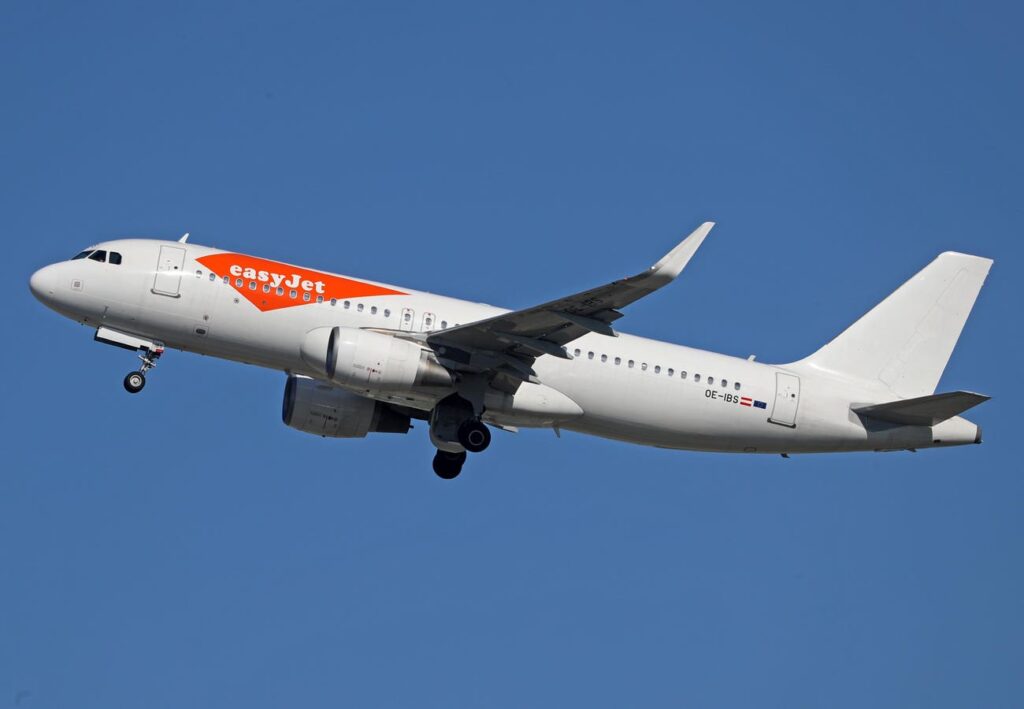easyJet has reported a significant increase in its stock value following a record summer, driven by strong demand for its package holidays, which has led to a sharp rise in full-year profits. As of Wednesday, shares were trading at 555p, reflecting a 2.7% increase that positioned easyJet as the biggest gainer on the FTSE 100 index. The airline’s revenues surged by 14% over the 12-month period ending in September, amounting to £9.3 billion. This impressive performance translated into a pre-tax profit of £610 million, marking a 34% increase, with the second half of the year alone generating record profits of £910 million.
The increase in revenues was attributed to an 8% rise in capacity, which allowed easyJet to accommodate 100.4 million seats, and the ongoing growth of its easyJet Holidays division, which has bolstered pricing strength on a per-seat basis. Specifically, the airline recorded a 1% increase in the average passenger revenue per seat, reaching £56.90. However, headline costs, excluding fuel, also saw a rise of 14% to £6.5 billion, reflecting both the increased capacity and growth in easyJet Holidays. Additionally, total fuel costs experienced a 9% increase to £2.2 billion, influenced by rising oil prices due to geopolitical tensions in the Middle East at the beginning of the year.
easyJet is set to reward its shareholders by raising the full-year dividend to 12.1p per share, an increase from the previous year’s 4.5p, signaling confidence in its financial stability. As of the end of the fiscal year, the airline reported a healthy net cash position of £181 million, compared to £41 million from the previous year. This financial foundation positions easyJet favorably for continued growth and investment in its operations.
The company’s package holiday division has emerged as a major success story, with sales soaring 47% year on year to reach £1.1 billion. This division saw a substantial increase in customer numbers, up 36%, and its market share enhanced from 5% to 7%. Additionally, air passenger revenues rose by 9% from the previous financial year to £5.7 billion, attributed to a total of 558,960 flights, which is an increase from 519,426. Despite the increase in capacity and service volume, the load factor remained consistently stable at 89.3%. Ancillary turnover from airline services also experienced a boost, climbing 13% year on year to £2.5 billion.
CEO Johan Lundgren noted that the strong financial results reflect effective execution of the airline’s strategic goals coupled with the popularity of both flights and package holidays. As Lundgren prepares to step down after seven years in the role on January 1, he emphasized that the previous year’s success is a significant move toward achieving easyJet’s aim of sustainably generating over £1 billion in annual pre-tax profit. The company’s outlook for the coming year appears positive, with plans to increase capacity by 3% to accommodate 103 million seats and targeting a 25% year-on-year growth in customer numbers for easyJet Holidays.
In addition to these growth initiatives, easyJet anticipates an improvement in its winter performance, with expectations to reduce losses significantly in the first quarter of the new fiscal year. However, the company acknowledges that the second quarter may be impacted by seasonal variations, particularly related to the timing of Easter and adjustments from prior year financial dynamics. As of now, the current quarter is reportedly 80% booked, with 26% of reservations secured for the following quarter, indicating robust demand ahead for the airline’s services and holidays. Overall, easyJet’s results highlight resilience and adaptability in the face of fluctuating market conditions, driving a positive outlook for the future.

